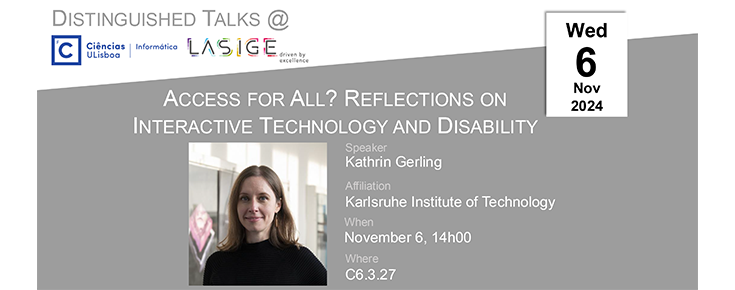
Por Kathrin Gerling.
The Human-Computer Interaction research community has a long history of building interactive technology for disabled people, for example, to support therapy and rehabilitation, or to offer accessible leisure. However, we don’t often pause to critically appraise the systems that we build, their implications for potential users, and the way we view disability within our research community. In my talk, I will give an overview of my research on virtual reality and games for disabled people, the risks and benefits that we discovered along the way, and open questions that we need to address if we want to achieve equitable access to immersive experiences. The talk will close with a reflection on how we can design with care and nuance when creating interactive technology that is meant to be accessible for all of us.
Short Bio: Kathrin Gerling is Professor of Human-Computer Interaction and Accessibility at the Institute for Anthropomatics und Robotics (IAR) within the Department of Informatics at Karlsruhe Institute of Technology (KIT), and head of the research group Human-Computer Interaction and Accessibility. Central to the research of her group is the question how interactive technology can be designed in a way that supports human self-determination, and how we can achieve experiential accessibility. Her work has been recognized through multiple awards, including Best Paper Awards at the leading venues in HCI such as CHI, and an ERC Starting Grant. She is a member of the steering committee of CHI PLAY, and serves on the editorial board of PACM HCI.













